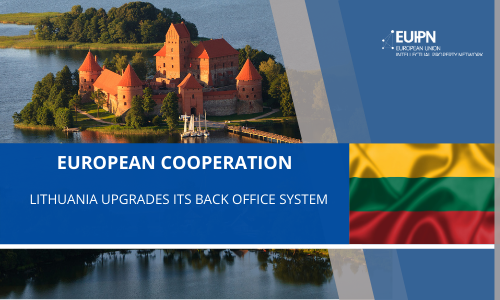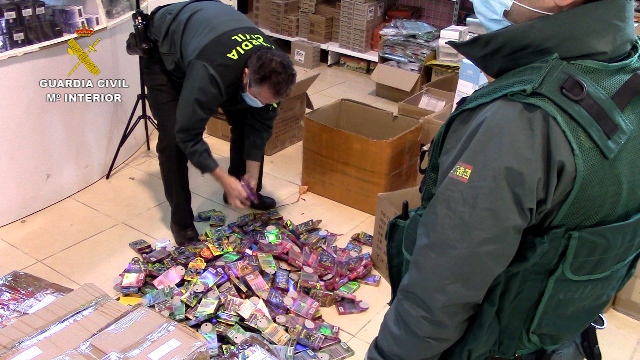Bénin : des milliers d’entreprises bénéficieront du premier partenariat entre la BEI et Vital Finance Bénin

- 77 000 prêts, des financements en monnaie locale et des investissements à plus long terme vont être débloqués
- 4 millions d’euros de financements ciblent les femmes
- Le concours de la BEI à l’appui de Vital Finance Bénin contribuera à combler le «chaînon manquant» entre les institutions de microfinance et les banques
- Premier partenariat au Bénin au titre du programme de microfinance de 50 millions d’euros mis en place par la BEI pour l’Afrique de l’Ouest
Le tout premier prêt de la Banque européenne d’investissement (BEI) octroyé à Vital Finance Bénin, favorisera l’investissement des petites entreprises et permettra de soutenir des milliers d’emplois au Bénin. Le nouveau programme de financement annoncé aujourd’hui ciblera particulièrement l’appui aux femmes dans le pays. Les femmes devraient représenter 70 % des bénéficiaires finaux.
Il s’agit de la toute première coopération entre la BEI, qui est la principale banque publique internationale au monde détenue par les 27 États membres de l’Union européenne, et Vital Finance Bénin, Institution de Microfinance, le troisième plus grand fournisseur de micro-financements dans ce pays d’Afrique de l’Ouest.
« Vital Finance Bénin comprend les priorités des entreprises de notre pays en matière d’investissement et les difficultés financières auxquelles elles sont confrontées. La nouvelle coopération avec la Banque européenne d’investissement permettra à Vital Finance de continuer à se développer et à aider les entreprises du pays à créer des emplois. Avec l’ensemble de nos collaborateurs, nous espérons nous appuyer sur notre nouvelle relation avec la BEI pour améliorer l’accès aux financements au Bénin et aider les promoteurs de petites entreprises à renforcer leurs compétences professionnelles essentielles à leur réussite », a déclaré Mr Wakil ADJIBI, PDG de Vital Finance Bénin.
« Il est essentiel de garantir que les entreprises peuvent se développer, créer des emplois. La Banque européenne d’investissement s’engage à soutenir les entreprises privées en Afrique et nous nous réjouissons d’avoir conclu notre première opération avec Vital Finance Bénin, une institution de microfinance de premier rang. Le premier engagement de la BEI au Bénin dans le cadre de notre mécanisme de microfinance pour l’Afrique de l’Ouest appuiera des milliers de prêts, engendrera des investissements en monnaie locale et aidera à remédier au chaînon manquant en matière d’investissement entre les banques et les institutions de microfinance en apportant des prêts de taille intermédiaire », a déclaré Ambroise Fayolle, vice-président de la Banque Européenne d’Investissement.
« L’Union européenne s’engage à soutenir les investissements du secteur privé, vecteurs de transformation, qui consolident le développement durable au Bénin. Cette première coopération entre la BEI, qui est la banque de l’UE, et Vital Finance témoigne de l’engagement renforcé de l’équipe d’Europe (Team Europe) à faire en sorte que les partenaires africains puissent mieux relever les défis du développement durable sur le continent. Améliorer l’accès au financement des petites entreprises offrira de nouvelles possibilités aux femmes entrepreneurs et aux jeunes dans tout le pays », a indiqué Sylvia Hartleif, cheffe de la délégation de l’Union européenne à Cotonou.
Atténuation de l’impact économique et social du COVID-19 au Bénin
La nouvelle coopération de la BEI avec Vital Finance Bénin contribuera à améliorer l’accès au financement des entreprises les plus exposées aux impacts de la pandémie de COVID-19 et permettra la poursuite des prêts aux microentreprises.
Au Bénin et dans toute l’Afrique, les entreprises ont souffert de la fermeture des frontières, de la restriction des importations et de difficultés soudaines rencontrées par les marchés d’exportation.
Des investissements renforcés grâce à un financement en monnaie locale sans risques de change
Le nouvel appui de la BEI à Vital Finance Bénin sera octroyé entièrement en monnaie locale, soit un montant équivalent à 4 millions d’euros en francs CFA, et bénéficiera du soutien du programme de la BEI dédié à l’investissement d’impact.
Solution intermédiaire entre les institutions de microfinance et les banques en matière de financements
Ce nouveau partenariat permettra à Vital Finance Bénin d’octroyer des prêts d’un montant supérieur à ceux généralement mis à disposition par les institutions de microfinance et inférieur à ceux des banques locales. Il fera office de solution intermédiaire en matière d’investissement, la mésofinance, un « chaînon manquant » qui freine l’expansion des petites entreprises.
Partage d’expérience financière et renforcement des compétences professionnelles grâce à une assistance technique
Le nouvel appui de la BEI à la microfinance au Bénin s’accompagnera d’une assistance technique pour partager avec Vital Finance Bénin les meilleures pratiques de toute l’Afrique en matière de gestion des risques et de ressources humaines. Les entrepreneurs du Bénin profiteront également de formations spécifiques visant à améliorer leurs compétences professionnelles et leur planification financière.
Consolidation de l’appui de la BEI aux investissements du secteur privé en Afrique
L’année dernière, la BEI a fourni plus de 1,8 milliard d’EUR pour soutenir les investissements du secteur privé en Afrique, ce qui représente 60 % de son engagement global sur le continent.
Cette somme comprenait notamment un nouveau soutien de 500 millions d’euros destiné à aider les jeunes pousses africaines à se lancer dans les domaines du numérique, de l’agroalimentaire, de l’inclusion financière et des services de santé.
Les nouveaux partenariats établis par la BEI avec des entreprises, des banques et des organismes de microcrédit africains permettent d’offrir des financements spécialisés aux petits exploitants agricoles, de supprimer les coûts associés aux financements en monnaie locale qui freinent les investissements et d’aider les entreprises privées à investir dans l’adaptation aux effets des changements climatiques.
De nouveaux programmes de financement du secteur privé ont fait l’objet d’accords avec des banques et des partenaires du microcrédit locaux de premier plan. Ces programmes comprennent des dispositifs spécifiques destinés à réduire les inégalités entre les femmes et les hommes, à fournir des financements à long terme en monnaie locale et à offrir des produits financiers sur mesure pour le secteur de l’agroalimentaire.
VITAL FINANCE est une structure leader au Bénin, exerçant dans le domaine de la microfinance. Elle est une institution de financement direct des micro, petites et moyennes entreprises.
Créée en 1998, elle s’est constituée en 20 ans un réseau fort d’une vingtaine de points de services, opérant sur l’ensemble du territoire national.
Cette initiative de Monsieur Wakil Adjibi, promoteur et Administrateur Directeur Général est partie d’une étude qui a révélé l’énorme potentialité du marché et du secteur. Les besoins qui s’en exprimaient étaient en effet, loin d’être couverts par les structures qui opéraient déjà sur la place.


